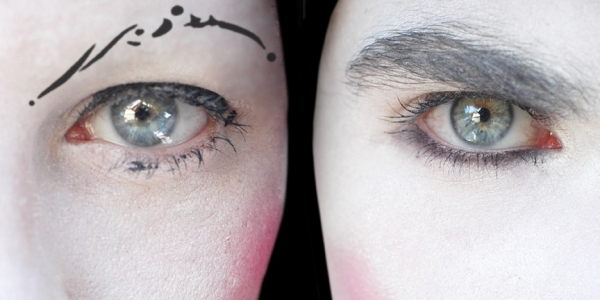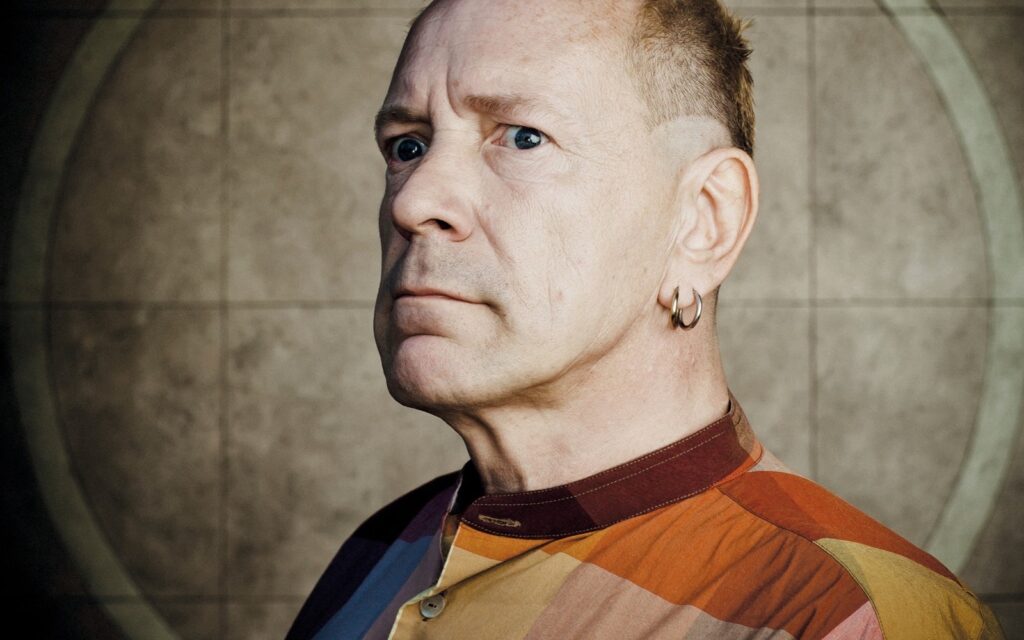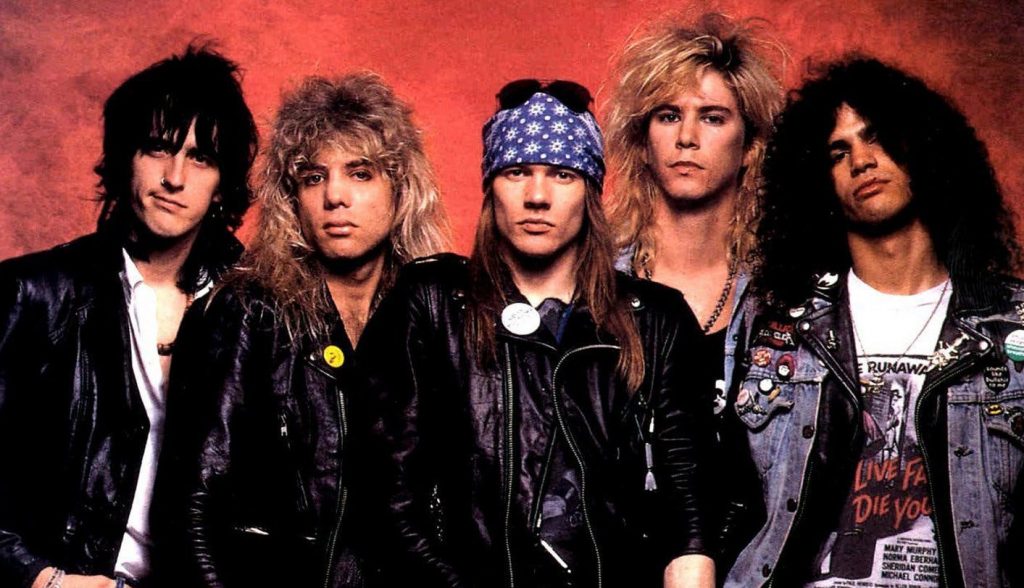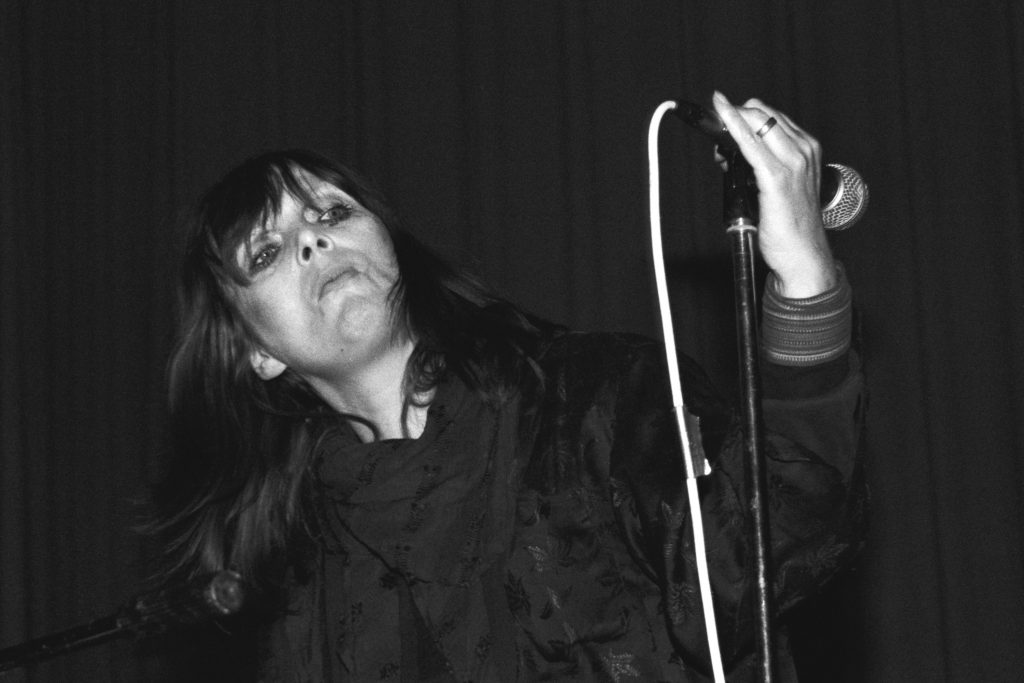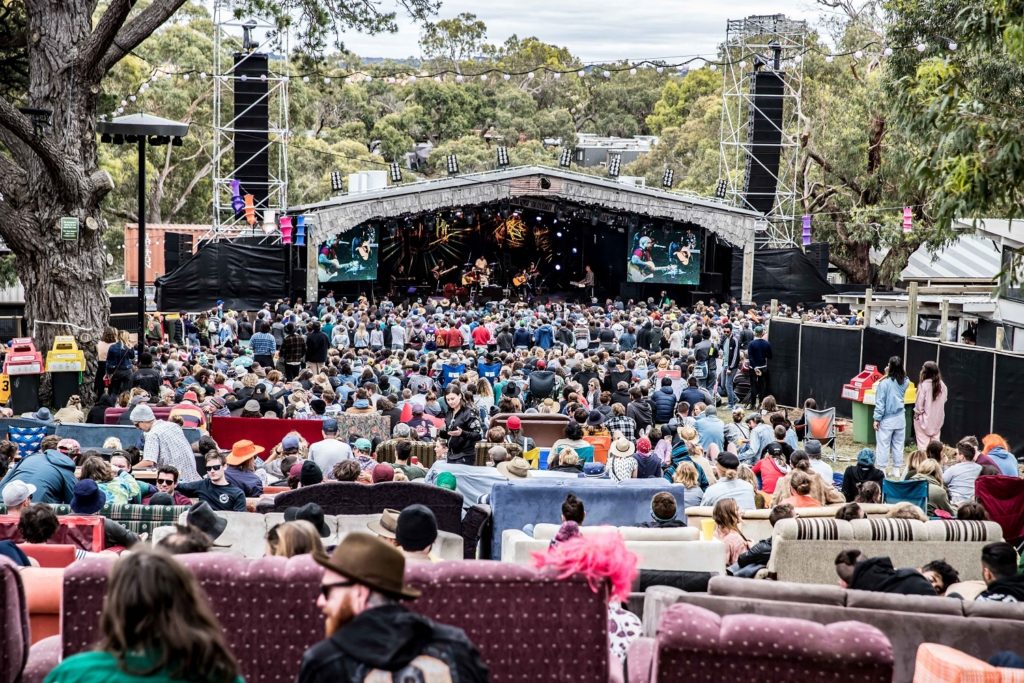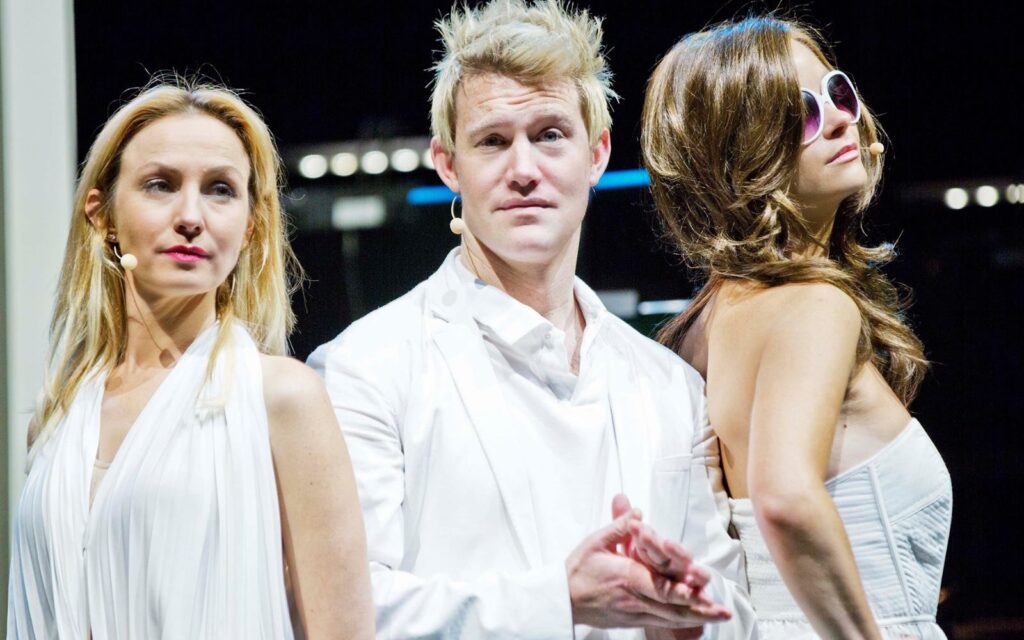“We just played Mexico and we’re doing a full sweep of Australia and New Zealand, and then after that we pack it up for a while again,” Palmer explains. “Brian’s going to go off and record some other bands, and I have a big, wonderful, juicy Melbourne-related secret that I can’t spill yet.” When pressed for details, she goes super-coy before offering, “It might have to do with the next thing I’m doing, maybe, in my musical career, that I might be basing in – maybe – this city.” Aside from what I can only describe as devilishly taunting laughter, Palmer offers no further hints as to what this musical extravaganza may be, suffice to say that about a day after this interview, she put out the word on her blog [blog.amandapalmer.net] that she needs a place to stay in Melbourne in February and March. “I love the city so dearly,” Palmer says. “It’s a chicken-and-egg situation because you never know how much positive stuff comes your way because you decide to like a place. I think a fair bit. But the people, the musicians and the artists, filmmakers, journalists, everyone in Melbourne just seems so awesome, to the point where I’m really getting scared that at some point something terrible is going to happen, like some giant black storm cloud is going to come and rain on my Melbourne experience and peel away the glossy facade and I’m gonna get attacked by killer junkies in the street.”
Although one of the most enduring images of Palmer’s career thus far is the sight of a furiously-being-pounded piano, her relationship with the instrument is surprisingly dysfunctional. In fact, she’s become a bit of an ambassador for the ukulele of late, appreciating its democratic tendencies compared to the tickled ivory. Palmer believes everyone can – nay, should! – play the uke. “It released me from my piano cage, which I didn’t even realise I was in,” she says. “I love the fact that I’m not a ukulele virtuoso. I never will be, no-one expects me to be, and nobody ever talks about how great a piano player I was. I don’t think I’ve ever read a single review of one of my records or live performances that spoke to my piano playing. I think it’s because I treat the piano like a tool. I would read interviews with people like Tori Amos or whatever, talking about their spiritual relationship with the piano and the keys, and I would just feel totally confused, like I was missing something. Because I don’t give a fuck about the piano. I really don’t! The piano was the instrument that happened to be there in my life when I wanted to make music. But I would happily have exchanged it for a guitar or a harp or anything that I could bang on and sing songs. I think that also explains why I never wanted to practice the piano, I never wanted to learn classical music, I never really wanted to be a good piano player. I wanted to be a good songwriter, so that’s where I put my energy. Instead of staying home and playing the piano I was off doing drugs and having sex and trying to have an interesting life so I’d have stuff to write about.”
With talents as a vocalist, pianist and now ukulele hero, Palmer technically qualifies as a multi-instrumentalist, although she doesn’t see herself that way exactly. “I think most musicians, especially those who learn by ear, are by nature multi-instrumentalists because to understand the structure of music and know that notes go from low to high, that instruments make noise and if you piece it all together you’ll probably get something that sounds like music,” she says. Palmer’s earliest exposure to learning by ear came when she was a little girl. From the time she could walk to and sit up at the piano, she was banging on it, inspired by her mother, who couldn’t play by ear, couldn’t improvise, but who had a reserve of classical pieces that she had learned as a girl – Bach, Debussy, Chopin – which she played in the house. “I don’t remember when and how she carved the time out, because she was basically a one-woman show supporting a household and raising two kids. But she made the time to play the piano. I was immediately drawn to it and I would watch her play, and as soon as I was able to digest the information, she popped me on her lap, and I wanted to play. She showed me what she was doing, and since I’m very visually oriented, I watched her fingers hitting the keys and I had no interest in the notes on the page. It just looked like this foreign forest of bizarreness. And it still does, I still can’t read music. But I looked at her fingers and that’s how I learned. Then she would leave the piano and I would try to sound out everything she had created.”
Finally, the conversation turns to the ins and outs of songwriting – when it happens, how it happens, why it happens. Palmer sums up, “I don’t really get excited about writing songs that I don’t think are going to see the light of day any time soon. Because there’s that instant gratification factor, which is stupid when you think about it, because I would write a piano song today before lunch, throw it up on YouTube and people would hear it by 3pm. But there’s also something really unsatisfying about that. In my old-school way I love creating a special world, recording things well and thoughtfully and packaging them together. So I’ve been releasing all this weird, silly stuff, but in the background I’ve been slowly assembling my next serious record. And that’s the thing I can’t talk about!”
BY PETER HODGSON
